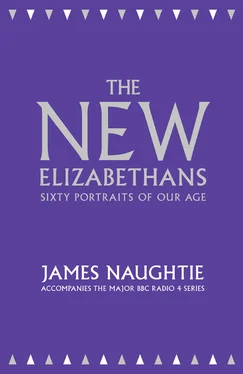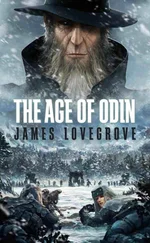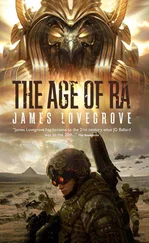For those brought up with the homely straightforwardness of Mrs Beeton and successive generations of advisers on fruit cakes and steak and kidney pie, wholesome broth and sticky puddings, savage melancholy was probably new in the kitchen. But by the end of the fifties David had brought a new spirit to the table. She soon cast a spell on imitators and disciples enough to ensure that she become the first of the modern British cooks. Without her, it’s probably safe to say, there would have been no Delia Smith, no Jamie Oliver, none of the excitements of the cooking that became a celebrity industry and one of the most unexpected social changes of our time. She made it possible to speak of a culture of food without seeming pretentious or odd, though if she’d thought that spiky boys would one day be queuing up when they left school in the hope of becoming chefs, she would have been mightily surprised.
Her natural milieu was a privileged one. She came from money and whizzed around Europe with an abandon that only her class could afford. Yet by the time she’d got to know France and Italy and Greece, say by the time she was in her mid-thirties after the war, she had conceived a zeal that turned her into a kind of evangelist for something better for everyone; something that the English table as she’d known it had lost. She had lived with a family in Paris and Normandy whom she realized were ‘exceptionally greedy and exceptionally well-fed’ but learned the family cuisine of France at their table, as spectacular in its own way as haute cuisine of the Escoffier sort, and she’d also breathed in the smell of fresh lemons in the south, understood the sensuality of food, and realized – as she said – that there was nothing more alluring than the sight of a nearly ripe fig waiting to be pulled from its tree at dawn.
To readers reared on boiled beef and carrots (both overcooked, of course), she was a revelation. On Mediterranean food in 1950: ‘The ever recurring elements in the food throughout these countries are the oil, the saffron, the garlic, the pungent local wines; the aromatic perfume of rosemary, wild marjoram and basil drying in the kitchens; the brilliance of the market stalls piled high with pimentos, aubergines, tomatoes, olives, melons, figs and limes; the great heaps of shiny fish … the butchers’ stalls are festooned with every imaginable portion of the inside of every edible animal (anyone who has lived for long in Greece will be familiar with the sound of air gruesomely whistling through sheep’s lungs frying in oil).’
To many readers an aubergine was a strange, foreign thing – was it a fruit or a vegetable? … perhaps neither – and David was talking to a generation that knew little of pasta, let alone the spices and the food of the East. But there was actually nothing at all foreign about eggplant: it had just somehow been forgotten in Britain. Although she was an explorer who brought news of the exotic from distant places, her real passion – and maybe her legacy – was the cooking of home. For she wanted nothing so much as the rediscovery of what had been lost, and to remind anyone who wanted to cook well that there was a history and a heritage in the gardens and fields of her native land that deserved to have life brought back to it.
So when she published Summer Cooking in 1955 she started with regret about the ‘hypnotic power’ of the deep freeze and a plea for the rhythm of the seasons to be understood and respected. She had seen people in her local greengrocer’s crowding round the freezer to pay four shilling for a few strawberries in a cardboard box when they could have had seven perfectly ripe, sweet oranges for a quarter of that. And she wrote, with a knowing sigh: ‘As soon as strawberries and raspberries are in season they will be clamouring for frozen pineapple and cartons of orange juice.’ That could have been written half a century later, because the battle goes on, with the same forces still trying to abolish the natural calendar of the table.
Some of the recipes in that book are hymns to simplicity, a few sentences only. Yet David’s purée of sorrel, or mint chutney or polpette of mutton, or crab mousse, come out perfectly, and cooks have found them as pleasing to read as to eat. Chefs like Simon Hopkinson have talked about going to bed with the books to bring on the happiest of slumbers. She passes on classic recipes without alteration – one begins ‘skin, behead and wash some small eels’ – with careful attribution, and there is never any compromise. Just as when she refused to allow the shop she founded to sell garlic presses on the grounds not just that they were ridiculous but – worse than that – pathetic, she is emphatic at every turn. ‘As I understand it,’ she started her introduction to the book, ‘summer cooking means the extraction of maximum enjoyment out of the produce which grows in the summer season and is appropriate to it.’ She could have stopped right there, the point made.
You never had to wait long for an opinion. The journalist Katherine Whitehorn once asked her how she felt about those who might not have time to bake all their own bread, as she said they should. What, for example, about women who were at work all day? ‘That’s their problem,’ was the reply. David’s independent spirit was fiery. That first affair in the thirties, the flirtation with artistic Paris and some wild and bohemian corners of Europe, were the clue to someone who was going to go her own way, especially if she was told not to. Maybe it was always likely that she’d suffer in turn, and she did, much later being left by a long-time companion for another woman, and falling out with those who ran her shops and continued trading under her name after she’d severed all ties. Her last years – she died in 1992 – had their difficulties. Life was always a swirl of action and passion.
David was born in 1913 and her great escape began in her teens, after the unexpected death of her father, a Conservative MP. Her mother wanted to encourage her interest in painting and she was sent to the Sorbonne, then to Germany just before Hitler came to power, before coming back and going through the rituals that had always been expected of her: the debutante balls and a formal introduction into society. But she had already tasted something else, and was in Greece almost before anyone noticed. When she came home, the war was over, but food was still rationed. And maybe it was the austerity itself that egged her on. ‘With whatever I could find, I cooked like one possessed.’
The consequence was books that made a case for food as a pillar of civilization, without which everything might shrivel and die. At the start of French Provincial Cooking David said that any man or woman capable of cooking a good English roast was a good enough cook to produce something more imaginative. ‘If a dish does not turn out to be quite as it was at the remembered auberge in Normandy, or at the restaurant on the banks of the Loire, is this a matter for despair? Because it is different, as by force of circumstance it must be, it is not necessarily worse.’
And so she tried to lift everyone up. There were other cooks of her time who played big parts too: Marguerite Patten maybe prime among them, who’d emerged from the Ministry of Food in the war to try to crack the problem of the rationed kitchen and inspired many cooks. The first television equivalent was Fanny Cradock, with her ubiquitous and put-upon husband Johnnie, who rushed from oven to table and back again, turning the kitchen into a place of well-meaning frenzy. But the real legacy of Elizabeth David came later, when Delia Smith decided that it was time to write a book for another lost generation, went on television, and sold millions of copies of her Complete Cookery Course .
Читать дальше












